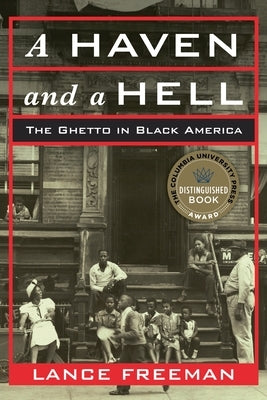- Description
Description
The black ghetto is thought of as a place of urban decay and social disarray. Like the historical ghetto of Venice, it is perceived as a space of confinement, one imposed on black America by whites. It is the home of a marginalized underclass and a sign of the depth of American segregation. Yet while black urban neighborhoods have suffered from institutional racism and economic neglect, they have also been places of refuge and community.
In A Haven and a Hell, Lance Freeman examines how the ghetto shaped black America and how black America shaped the ghetto. Freeman traces the evolving role of predominantly black neighborhoods in northern cities from the late nineteenth century through the present day. At times, the ghetto promised the freedom to build black social institutions and political power. At others, it suppressed and further stigmatized African Americans. Freeman reveals the forces that caused the ghetto's role as haven or hell to wax and wane, spanning the Great Migration, mid-century opportunities, the eruptions of the sixties, the challenges of the seventies and eighties, and present-day issues of mass incarceration, the subprime crisis, and gentrification. Offering timely planning and policy recommendations based in this history, A Haven and a Hell provides a powerful new understanding of urban black communities at a time when the future of many inner-city neighborhoods appears uncertain.Author: Lance Freeman
Publisher: Columbia University Press
Published: 04/16/2019
Pages: 328
Binding Type: Hardcover
Weight: 1.30lbs
Size: 9.10h x 6.30w x 1.10d
ISBN13: 9780231184601
ISBN10: 0231184603
BISAC Categories:
- History | African American & Black
- Social Science | Ethnic Studies | American | African American & Black Studies
- History | Social History
About the Author
Lance Freeman is a professor in the Urban Planning Program in the Graduate School of Architecture, Planning, and Preservation at Columbia University. He is the author of There Goes the Hood: Views of Gentrification from the Ground Up (2005).



